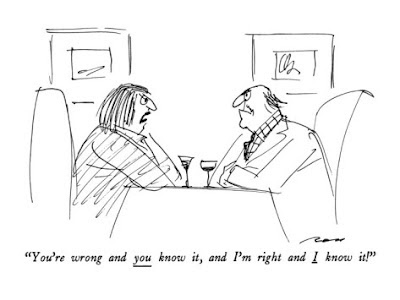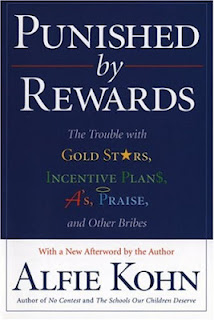 This piece was born out of my ongoing confusion about how to talk about the vision of living beyond right and wrong thinking. Two questions repeatedly arise, and I am not always satisfied with my responses to them. As different as they may seem, both, to me, are indicative of the same challenge. One question is some version of: “Are you saying that it’s OK to kill someone?” The other takes the form of: “Aren’t you saying that judgments are wrong?” My one word answer to both of them is simply “no.” So, what, then, am I saying?
This piece was born out of my ongoing confusion about how to talk about the vision of living beyond right and wrong thinking. Two questions repeatedly arise, and I am not always satisfied with my responses to them. As different as they may seem, both, to me, are indicative of the same challenge. One question is some version of: “Are you saying that it’s OK to kill someone?” The other takes the form of: “Aren’t you saying that judgments are wrong?” My one word answer to both of them is simply “no.” So, what, then, am I saying?
Our Words Have Consequences
 My rather arbitrary starting place in disentangling the many threads in this knot is to explore the significance of our choice of words. Saying that something is “wrong”, or “right”, or “beautiful”, for that matter, has consequences for the speaker as well as for the person hearing the words. This form of speaking assumes a standard of what these words mean that is external to the speaker and the listener. The speaker is not taking full responsibility for being the one making that judgment. The listener is subtly invited to agree with the speaker rather than to understand the speaker. The ensuing conversation, if one takes place, is less likely to be one of exploration and connection than one of making pronouncements and, in the case of disagreement, debate, possibly acrimony.
My rather arbitrary starting place in disentangling the many threads in this knot is to explore the significance of our choice of words. Saying that something is “wrong”, or “right”, or “beautiful”, for that matter, has consequences for the speaker as well as for the person hearing the words. This form of speaking assumes a standard of what these words mean that is external to the speaker and the listener. The speaker is not taking full responsibility for being the one making that judgment. The listener is subtly invited to agree with the speaker rather than to understand the speaker. The ensuing conversation, if one takes place, is less likely to be one of exploration and connection than one of making pronouncements and, in the case of disagreement, debate, possibly acrimony.
 For myself, based on years of learning, practicing, and teaching, I can say with definite clarity that I prefer the consequences of speaking without judgments to what happens when I use judgment words. The quality of connection and dialogue, and the capacity of people to work together to create something they can both live with, increase with the former. In part, this is because saying things from a personally owned perspective tends to be more vulnerable and therefore, again in my experience, invite a response that is also more vulnerable. In part, this is because when the speaker expresses things in that way, there tends to be more of an explanation of a “why” that the other side can then relate to.
For myself, based on years of learning, practicing, and teaching, I can say with definite clarity that I prefer the consequences of speaking without judgments to what happens when I use judgment words. The quality of connection and dialogue, and the capacity of people to work together to create something they can both live with, increase with the former. In part, this is because saying things from a personally owned perspective tends to be more vulnerable and therefore, again in my experience, invite a response that is also more vulnerable. In part, this is because when the speaker expresses things in that way, there tends to be more of an explanation of a “why” that the other side can then relate to.My favorite example of this kind of shift is what happened when the Public Conversations Project brought together people from across the abortion debate. People were asked to speak of their values and life experiences that led them to have the positions they had, rather than about the positions themselves. The result, after a few years of continued conversations beyond that original event, was that six leaders of opposing movements co-authored an article in the Boston Globe in 2001 titled “Talking with the Enemy“. This is a moving account of how, in the face of some of the most entrenched differences in positions, these women came to love and respect each other. None of them changed their positions, and nonetheless they could engage with each other, even collaborate to prevent violence in abortion clinics.
Two Kinds of Judgments
My own concern is about the kind of judgment that implicitly relies on an external authority. When I say “It is wrong to do so” rather than “I am disturbed about this act,” I am implying that the “wrongness” is external to my own evaluation, exists there, in some objective reality. In my view, this is precisely what creates the harm from judgments. Based on my own evaluation of human history and my own experience of working with people, I am confident that significantly more harm has been done by individuals and cultures who use that kind of judgment than those who only or mostly use judgments that are based on needs and values that are recognized as such. This statement I just made, in itself, is a form of value judgment. The value in question is my own deep care for life, from which emerges my desire to choose actions and forms of speech that I believe will serve life more fully. This, to me, is a far cry from saying that judgments are wrong, or even that there are two kinds of judgments, and one kind is wrong. I am evaluating based on consequences to what is dear to me.
“Positive” Judgments
Is Praise Enjoyable?
Training of the Mind
Choosing Judgments for Connection

I am profoundly distressed at the actions of police, in Oakland and elsewhere, I am fundamentally aligned with that same perspective. I experience the actions of police as tragic more than anything else, helping no one, harming many, and contributing to increasing loss of trust rippling through many communities. It would never occur to me to call these actions “evil” or even “wrong.”
Nonetheless, I happily managed to stay focused on understanding Nancy instead of getting involved in the content of the issue. Nancy brought the issue up because she wanted to know how to talk with her friend about the topic. I was, in fact, honored that she chose to talk with me knowing what my position is.
Instead of debating the question of evil, what we did instead is look at what was so important to Nancy about using this term. We identified a few elements of great significance. Partly, calling on an external reference was a way, for her, of trusting that the seriousness of an issue would be believed. Coming from a history of abuse in which Nancy’s experience was not believed, she wants people’s experience of harm to be fully recognized. Partly, it’s a sense of solidarity with the people being harmed. Naming what happens to them evil lets them know that they are not alone with the experience.
From this conversation I got to understand more fully why I might sometimes choose to use a word such as “evil” or any other judgment. This is no different than any other act of stepping into someone else’s shoes and worldview in order to create connection and understanding. It is my choice, and my choice alone to transcend the habit of making these kinds of judgments. I am obviously putting it out — here and when I teach, for example — because I want more people to embrace this choice, because I have more faith we can reach a livable future if we do that. It is not my intention, ever, to try to “teach” someone who has not chosen to be taught by me. If someone were to come to me to express their distress about what police has done to them, I want to be able to choose to use their language and call it “evil” if I thought this would be the way to convey understanding better than to reach for and name the person’s needs. Ultimately, I want my choice of language to be given by my purpose, not by any sense of “rightness” about the language. I’d like to believe that I can stay true to this intention in moments of challenge.

Oh, for the love and honor of all that’s good and holy, raping 9 year old boys is WRONG, yes, in a cosmic “outside of my opinion” fact. Otherwise, I have no desire to be part of this world or any other. I know I’m picking an extreme example, but if there is NO boudary, no sense of morality…oh, you just sound so silly. “I am disturbed by what the police did.” Well, WHY were you disturbed? Because you know it was wrong. Wrong. Wrong. Oy.
BRAVA.
Several considerations bring clarity to me:
1) What is good for the eagle is bad for the rabbit. This situation is
inescapable from the viewpoint of the manifest world. Every creature must
be fed, if life is to continue. Life feeds on life. One can see this as
something like “Providence of God”, as an “Ultimate Horror”, or as
“meaningless”.
2) In my value system I usually take violent coercion in human actions
such as rape, murder, torture, theft, aggressive war, as “evil” acts: they
do not promote survival, but work against it. Unlike animals, human beings
have the capacity, although it is rare, to understand their position both
as mortal body, and as inalienable parts or incarnations or instances of an
eternal Mystery.
3) No “evil” acts, nor “good” acts either, stain or enhance created
souls; we are all equal, none stands above another. Although the incarnated
soul, in the confusion of terrestial life may act unlovingly, and thereby
commit evil acts, it is as mistaken to see *him* (inclusive) as “evil” in
his *personhood* as his mistaken *actions* may be in obtaining for him the
object of his real desire.
4) Persons engaging in violence may have to be isolated if they cannot
be trusted to value the common good; for instance persons convicted of
arson cannot be allowed to run around loose. But it is impossible to punish
a crazy person into sanity. And extreme punishment itself is evil. Thus
violence and retribution are continued through the generations.